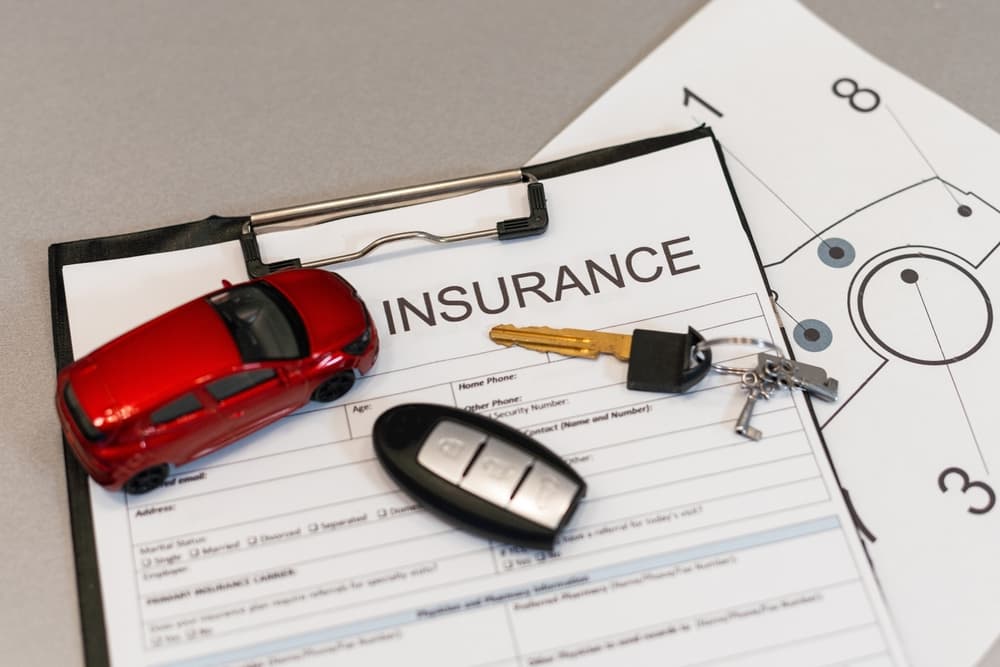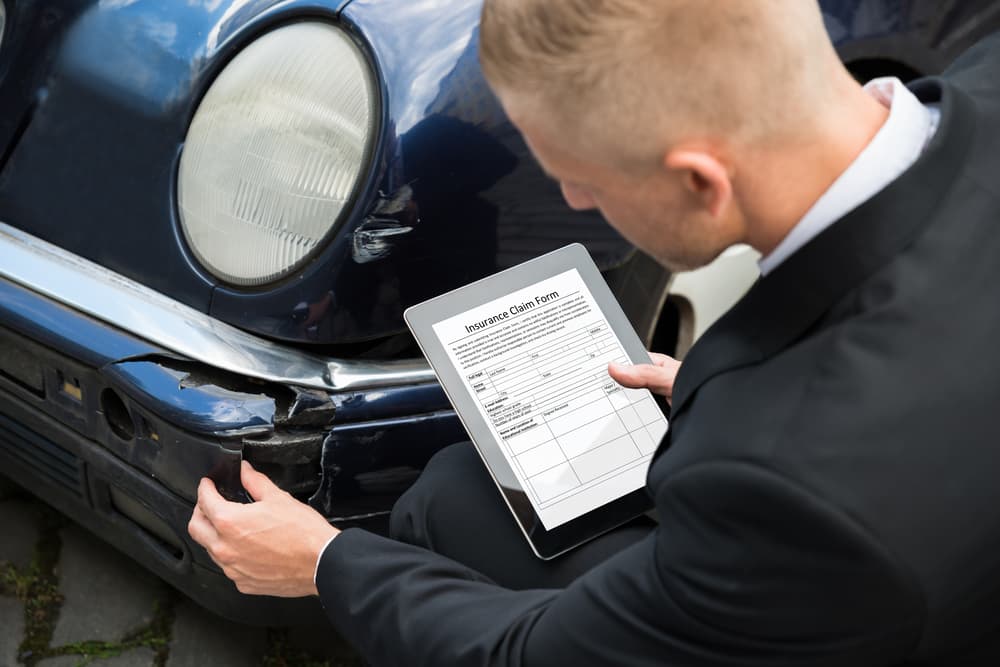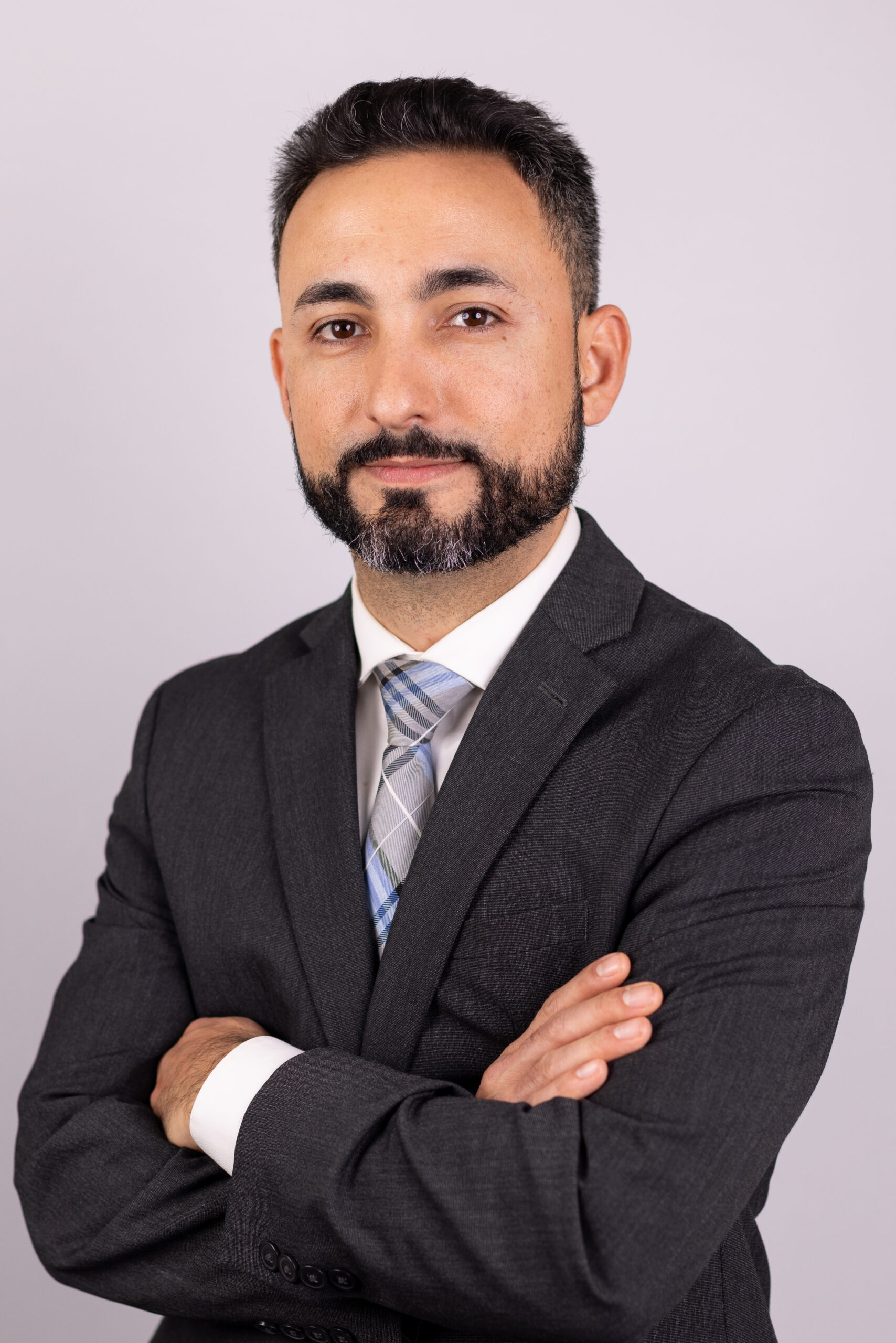For many car accident victims, communicating with the insurance company is one of the biggest struggles. While the insurance claims adjuster who contacts you within hours or days after the accident might seem friendly and cooperative, make no mistake: They are not on your side.
Speak carefully to your insurance company when reporting the accident or answering the adjuster's questions. If you are not careful enough, you can say things the insurance company can use against you.
A car accident attorney can explain what you shouldn't tell your insurance company and provide trusted guidance through the insurance claims process.
10 Things to Avoid Saying to Your Insurance Company

Many claimants do not realize it, but their words can make a noticeable impact on the outcome of their case. You should avoid saying ten things to the insurer to recover the maximum compensation available.
"I'm feeling fine"
After an accident, adrenaline can mask your injury symptoms. For example, symptoms of whiplash most often start within a few days of the injury. That may lead you to mistakenly believe you weren't hurt. Telling your insurance company that you feel fine can undermine future claims for injuries that manifest later.
Even if you feel okay, refrain from making definitive health statements. Instead, seek medical attention and allow professionals to assess your condition.
- What happens if you say it? By claiming you're fine immediately after the accident, you may unintentionally waive your right to claim compensation for any injuries that appear later.
"I think it might have been my fault."
Determining fault is a complex process that involves evidence, witness statements, and professional analysis. Admitting fault prematurely can jeopardize your claim and liability coverage.
Even if you think you might be partially responsible, avoid admitting fault or making any statements that can suggest it. Let the investigation take its course and allow professionals to determine the responsible party.
- What happens if you say it? We provide evidence in any legal proceedings following the accident if we admit fault. As a result, it can lead to your claim being denied or reduced.
"Yes, you can record my statement."
Insurance adjusters often ask to record your statement, which can later scrutinize your words and potentially undermine your claim. Politely decline recorded statements until you have had the chance to consult with an attorney.
It's best to provide thoughtful and carefully constructed written statements, ensuring you don't inadvertently say something that can harm your case.
- What happens if you say it? Insurance adjusters often ask questions that might lead you to make statements that hurt your best interests. They might pressure you into saying something that harms your claim, and recorded statements can work against you in court.
"No, I won't hire an attorney."
While you might think handling the claim process yourself will save money, being unrepresented can create several problems. Insurance companies are professional negotiators with extensive experience in handling claims. Representing yourself can put you at a disadvantage, especially if the insurer attempts to lowball your settlement or deny your claim altogether.
Declaring upfront that you won't hire an attorney can signal to the insurance company that you might not fully understand your rights or the value of your claim. Consult a car accident attorney to protect your interests and ensure the insurer won’t exploit you.
- What happens if you say it? Without an attorney representing your interests, the insurance company might think you are serious about getting a fair settlement.
"I was tired/sleepy/impaired."

Never admit to feeling tired, sleepy, or impaired at the time of the accident. Insurance adjusters are trained to mitigate the company's liabilities and will not hesitate to use your words to lessen or deny your claim.
Stick to the facts of the incident, and avoid discussing your condition or state of mind unless specifically required by law enforcement during their investigation.
- What happens if you say it? By stating that you were not in your best state while driving, you provide them with ammunition to deny your claim or reduce its value.
"Yes, I can share the names of my family/friends/witnesses."
While providing names of family, friends, or witnesses may seem helpful, be cautious. Insurance companies might contact these individuals, looking for discrepancies or statements that can undermine your claim.
Consult your car accident attorney before sharing names. Your legal counsel can advise you on beneficial witnesses and how to present their information to strengthen your case.
- What happens if you say it? Suppose the insurance company contacts your family members, friends, or family members whose statements do not align with your version of the events. In that case, it will likely use their statements against you.
"Yes, I will sign the release of my medical records."
Insurance companies often request a release of your medical records to assess your injuries. However, signing this release can give them access to your entire medical history, not just records related to the accident. They may use unrelated medical issues to argue that your injuries were pre-existing.
Instead, request that they specify the necessary information and consult with your attorney before signing anything. Your lawyer can ensure that you only share the relevant medical information.
- What happens if you say it? The insurance company might use unrelated medical issues to argue that your injuries were pre-existing, which can lower the compensation you receive.
"No, I don't think my injuries are that serious."
Did you know the average cost of an evident injury resulting from a car accident is $40,000?
Downplaying your injuries is a common mistake. Some injuries may not manifest symptoms right away. You risk reducing the potential compensation for your damages and losses by underestimating your injuries in conversations with the insurance company.
Always seek medical attention promptly after an accident and follow your doctor's advice. Report your injuries accurately and consistently to your medical providers and the insurance company.
- What happens if you say it? By claiming that your injuries are not severe, you weaken your case for future medical expenses, rehabilitation, and other damages that may arise.
"Yes, I accept this first settlement offer."
Insurance companies often make a quick first settlement offer far below what your claim is worth. Initial offers usually aim to close the case quickly and minimize the payout. Never accept the first offer without talking to your car accident attorney.
A lawyer can assess the fair value of your claim based on the full extent of your damages, including your anticipated medical expenses, loss of income, diminished earning capacity, and any physical or mental effects such as pain and suffering, emotional distress, and others.
- What happens if you say it? Once you accept, you automatically waive your right to pursue compensation in the future, even if your injuries worsen or you incur additional expenses.
Anything that begins with "I guess..." or "In my opinion..."
Vague or speculative statements can be detrimental to your claim. Phrases like "I guess..." or "In my opinion..." suggest uncertainty and can be interpreted in various ways, often not in your favor. Stick to the facts and provide clear, concise, and accurate information.
If you're unsure about any aspect of the accident, say you don't know rather than offer guesswork. Never volunteer any information.
- What happens if you say it? Any uncertainty in your statements can create doubts about the validity of your claim. Personal opinions can challenge the facts of the case.
Things You Need to Know About Insurance Companies

When communicating with your insurance company and its representatives, you need to know who you are dealing with and what to expect from the insurer.
Insurance Companies Are in the Business of Making Money
First and foremost, before your first conversation with the insurance company, you need to remember this one thing: all insurance companies are profit-driven businesses. Their primary goal is to maximize profits, which usually means minimizing the amount they pay out in claims.
Although they provide valuable services, they do not prioritize your best interests.
Insurance companies collect premiums from policyholders, their main revenue source. The more claims they deny or underpay, the larger their profit margins. Insurers also invest in sophisticated software and employ adjusters whose primary role is to manage costs and reduce the payout on claims.
Always approach interactions with insurance adjusters with a clear understanding that their primary aim is to protect their employer's bottom line. This tip alone can prevent you from saying things detrimental to your case.
Insurers Might Employ Bad-Faith Insurance Practices
Unfortunately, some insurance companies employ bad-faith insurance practices to avoid paying out claims. These practices are not only unethical but also illegal.
Recognizing the various bad-faith tactics can protect your rights:
- Delaying claims. One common tactic insurers use is to delay the processing of your claim in the hope that you will become frustrated and accept a lower settlement.
- Denying valid claims. Insurers might deny a valid claim without a reasonable basis, hoping you won't contest their decision.
- Underpayment. This means offering settlements that are much lower than what you deserve.
- Misleading information. The insurer may also provide incorrect or misleading information about your policy and coverage to confuse or dissuade you from pursuing a claim.
Often, people do not realize the insurance company is using bad faith practices. For this reason, having a car accident attorney when dealing with insurance companies will be more beneficial than being unrepresented because they won't let the insurer push you around.
Insurers want to prevent you from being represented by a lawyer

Insurance companies often discourage claimants from hiring lawyers, as they know that legal representation will generally increase the settlement amount. This happens because car accident lawyers understand the tactics used by insurers and can effectively counter them.
Lawyers are also skilled negotiators who can advocate for a fair settlement reflecting the client's damages and suffering. With an attorney, you can ensure that your rights are protected and that you do not fall victim to bad faith practices.
What Can You Expect From Working With a Car Accident Lawyer?
If you hire an attorney to handle the insurance claims process, you can expect them to:
- Investigate the accident and develop a legal case. The first step in any car accident case is thoroughly investigating the incident. A seasoned attorney will gather all the necessary evidence to build a strong legal case on your behalf.
- Assess your losses, including your anticipated medical expenses. Understanding the full extent of your losses is crucial. A car accident lawyer will assess your damages to seek fair compensation that reflects the accident's impact on your life.
- Determine the at-fault and liable parties. Identifying the parties responsible for the accident is critical before filing a compensation claim. In some cases, multiple parties may share liability, complicating the process. It will be your attorney's job to determine those who should be held accountable for their negligence.
- Identify the applicable insurance policy to maximize compensation. Insurance policies play an important role in obtaining compensation after a car crash. You will need a lawyer to examine all relevant insurance policies, including your own and those of the at-fault party, identify the limits of each policy to determine the maximum compensation available and navigate the complexities of the insurance claims process.
- File your claim. Once your lawyer has collected all the necessary information, they will file a compensation claim. This step includes drafting and submitting all required legal documents to initiate your claim. Filing a claim requires meticulous attention to detail. Your lawyer's experience in legal procedures ensures that everything is managed correctly and within the applicable timeframes.
- Negotiate with the insurance provider. Negotiating with insurance companies can be challenging, as they often aim to minimize payouts. Your car accident attorney will handle all communications with insurance adjusters to protect your interests and leverage their negotiation skills to seek a fair settlement that adequately compensates you for your losses.
- Manage your legal proceedings, including possible litigation. Statistics show that 97 percent of all tort claims settle out of court, but litigation may be necessary in some cases to achieve a fair outcome. For this reason, you might need an attorney to develop a robust trial strategy, including witness preparation, evidence presentation, and legal arguments. When you hire an attorney, they will advocate for you during court proceedings, ensuring they present your case effectively. A seasoned lawyer can guide you in navigating the legal system and achieving the best possible outcome.
Contact Apex Law Firm, PLLC for a Free Consultation With a Tampa Car Accident Lawyer
Navigating the insurance claims process alone is not a good idea, as you might inadvertently make a statement or comment that will cause you problems. Instead, consult a personal injury attorney and allow them to handle the insurance process for you.
We proudly serve Hillsborough County, Pinellas County, Pasco County, Polk County, and its surrounding areas in Florida:
Apex Law Firm - Tampa Office
412 E Madison St Suite 1206, Tampa, FL 33602
(813) 212-0955


